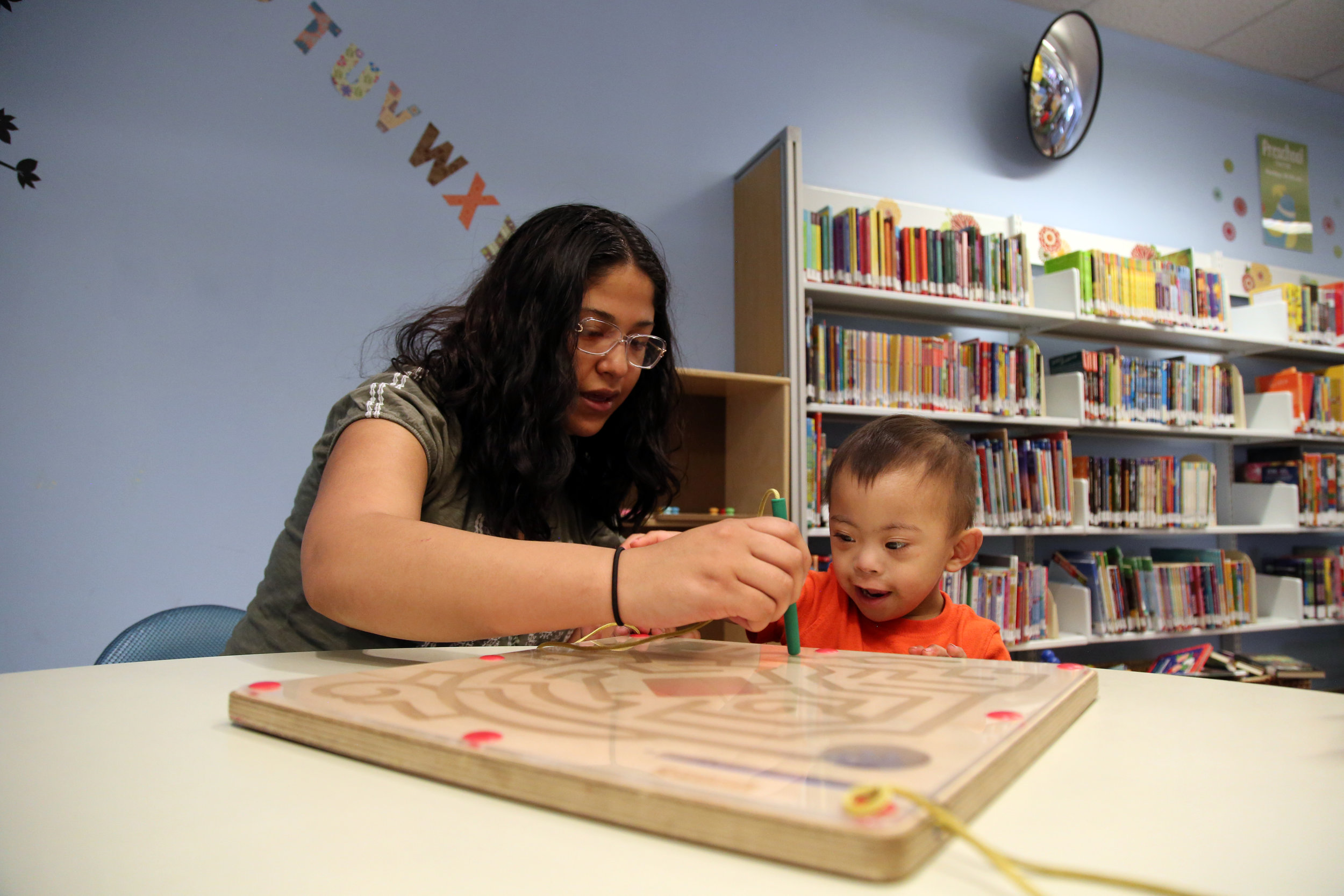Mother shares story of struggle to gain foothold
Michelle McCarty, 46, and her 14-year-old son, William, slept in their 2003 Volkswagen Jetta wagon for almost two months when they first moved to Douglas County.
Each night they moved the ice chest and suitcases to the front seat, laid out sleeping bags and pillows in the back, then stretched out next to each other.
“Part of what people think when you say you’re living in your car is that you’re using your car as your house,” William said. “But, really, our car was not our house — our car was our bed.”
For a short while this year, William was one of hundreds of Douglas County students considered homeless. Unlike many homeless youths in urban areas, they don’t necessarily live on the street. But, like William, they don’t have a permanent place to call home.
Instead, they sleep on friends’ and relatives’ couches. Or in hotels. Or cars, when options have run out.
“I remember looking over at William sleeping and just crying because I felt like I was putting him through this,” McCarty recalled recently, as she sat in a bungee-cord chair in the dining room of their new apartment in Highlands Ranch. “But I was so proud of him because he was so strong.”
…
The healing power of nature: Studies show being outdoors reduces stress, depression and anxiety
After graduating college, Travis Wild soon found that spending time in the mountains and on trails in Colorado gave him a place to reconnect with himself and restore his mind.
“For me, the outdoors are how everything is supposed to be without influence of problems,” Wild said, adding that nature has been the steady support in his life through rough times.
When he was diagnosed with testicular cancer almost five years ago, at age 26, Wild turned to nature to destress and cope with the difficult situation. The diagnosis came when he was changing jobs, changing relationships and mourning the loss of his grandmother.
“Outside was a place that I could go to step back and be in control a little more,” Wild said. “I got to feel normal again. Sometimes it was the only thing I had to look forward to.”
Now, Wild lives on the road, having turned his passion for outdoor space and adventure into a career as an adventure photographer. But whenever he gets time off, he makes sure to come back to the Colorado wilderness.
Wild is not alone when it comes to feeling improved mental health in the outdoors.
…
Preventing dropouts among pregnant, parenting students
During her sophomore year of high school, Leslie Belmontes found out she was pregnant.
Not feeling like she could continue at her traditional high school, Northglenn High, Belmontes transferred to New American School in Thornton for her junior year. She thought the non-traditional school would be a better choice for her to continue her education while she prepared to become a mother.
But after giving birth to her son, Aaron, during winter break, a lack of support from school staff, babysitting needs and additional medical attention for her son, who was diagnosed with Down syndrome and a heart murmur, made Belmontes feel that she couldn’t go to school anymore.
She became part of the 90 percent of pregnant and parenting teens to drop out of school, according to the National Dropout Prevention Center.
The center, a nonprofit based in South Carolina dedicated to increasing graduation rates, also published a self-reported study that said 28 percent of female dropouts cited pregnancy and the health concerns associated with it as the reason for dropping out of school. Another 25 percent cited becoming a mother. Lack of childcare is one of the biggest reasons for this.
…



